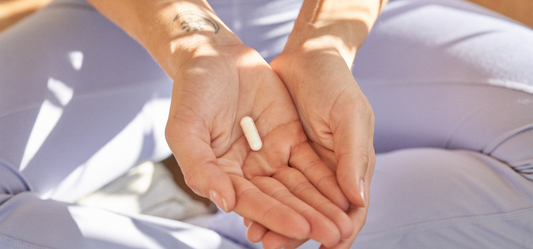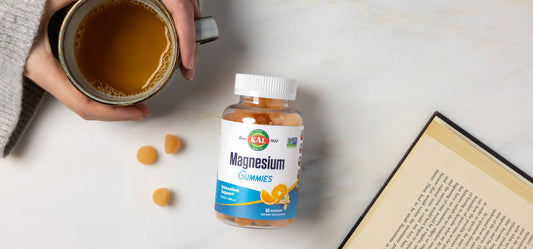Mindfulness is the awareness that comes when you pay attention without judgment in the present moment. Research shows that when a person cultivates this present-moment awareness, it can have emotional, mental, and physical health benefits.1
Being fully in the moment may sound easy enough but most people have an active wandering mind thinking more about the past or the future than the present. Just like any new behavior, being mindful takes practice and a concerted effort to make these new habits become a part of your daily routine.
By having moment-to-moment awareness throughout your day you will create a mindful state that has many health benefits including:2
- Stress reduction and less worry
- Better working memory
- Enhanced focus and attention
- Less emotional reactivity
- Greater flexibility
- Enhanced relationships
- Reduced psychological distress
- Increased immune function and better overall physical wellbeing
How do you create a consistent mindfulness routine? You have several options.
Creating Healthy Mind Habits
One of the most common ways to create mindfulness is with daily meditation; however, not everyone is into meditation. Fortunately, there are other ways to be mindful beginning with something as simple as breathing.
One breathing technique that has been popularized within the past ten years but has ancient roots is the 4-7-8 technique. This is when you breathe in through your nose for four counts, hold your breath for seven counts, and exhale through your mouth for eight counts. This type of breathing will help reduce stress and anxiety, help you sleep better, and calm your mind in the moment.3
You can also be mindful when you move. Mindful walking, especially in nature, is a great time to be in the moment with open awareness. In one study involving university students, mindfully walking in nature improved mood and sleep quality.4 Also, certain forms of exercise such as yoga, Tai chi, and Qigong automatically have mindfulness built into their routines.5
There are also benefits of mindful eating, which is when you pay attention to all aspects of the eating experience in the moment by focusing on all your senses such as touch, sight, sound, smell, and taste. Eating with heightened awareness has not only been shown to help support healthy digestion, but it also benefits overall mental well-being.6,7
Be in the Moment
It’s been said that the past is the past, the future is the future, but the present is truly a gift. Being in the present moment filled with awareness is mindfulness and, in that state, health benefits abound.
For more tips on nutrition, mindful wellness practices, and helping your family feel their best, follow us on Facebook @kalvits and Instagram at @kalvitamins!
References
- Schuman-Olivier Z, Trombka M, Lovas DA, et al. Mindfulness and behavior change. Harv Rev Psychiatry. 2020;28(6):371-394. https://www.ncbi.nlm.nih.gov/pmc/articles/PMC7647439/
- Davis DM, Hayes JA. What are the benefits of mindfulness. American Psychological Association. 2012;43(7). https://www.apa.org/monitor/2012/07-08/ce-corner
- Cleveland Clinic. How to do the 4-7-8 breathing exercise. Health Essentials. 2022;Sept 5. https://health.clevelandclinic.org/4-7-8-breathing
- Ma J, Williams JM, Morris PG, Chan S. Effectiveness of a mindful nature walking intervention on sleep quality and mood in university students during Covid-19: a randomized control study. Explore. 2023;19(3):405-416. https://www.ncbi.nlm.nih.gov/pmc/articles/PMC9365743/
- Wang Y, Huang G, Duke G, Yang Y. Tai chi, yoga, Quigong as mind-body exercises. Evid Based Complement Alternat Med. 2017;2017. https://www.ncbi.nlm.nih.gov/pmc/articles/PMC5244011/
- Khan Z, Zadeh ZF. Mindful eating and its relationship with mental well-being. Procedia. 2014;159(23):69-73. https://www.sciencedirect.com/science/article/pii/S187704281406460X
- Cherpak CE. Mindful eating: a review of how the stress-digestion-mindfulness triad may modulate and improve gastrointestinal and digestive function. Integrative Medicine. 2019;18(4):48-53. https://www.ncbi.nlm.nih.gov/pmc/articles/PMC7219460/




